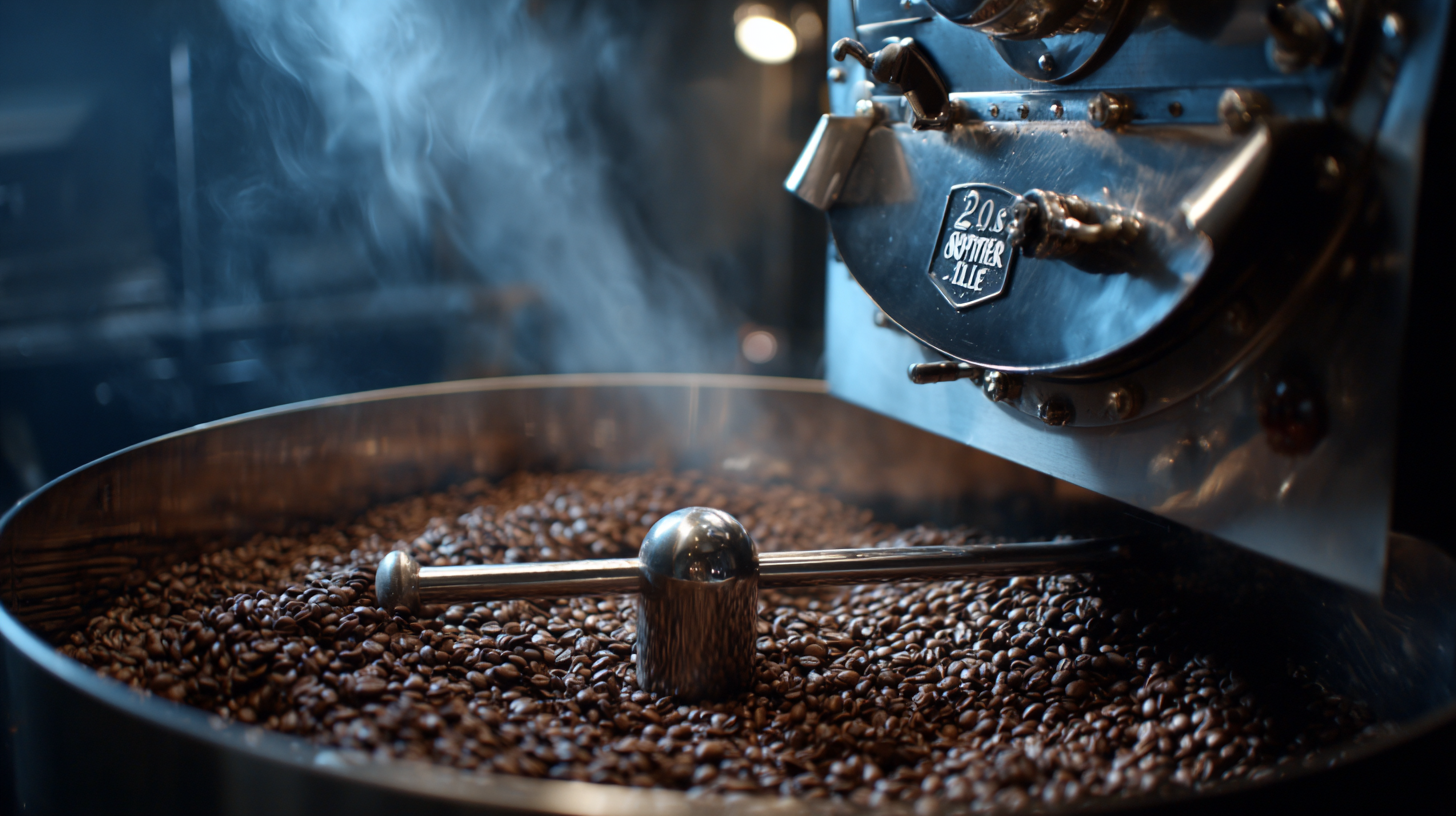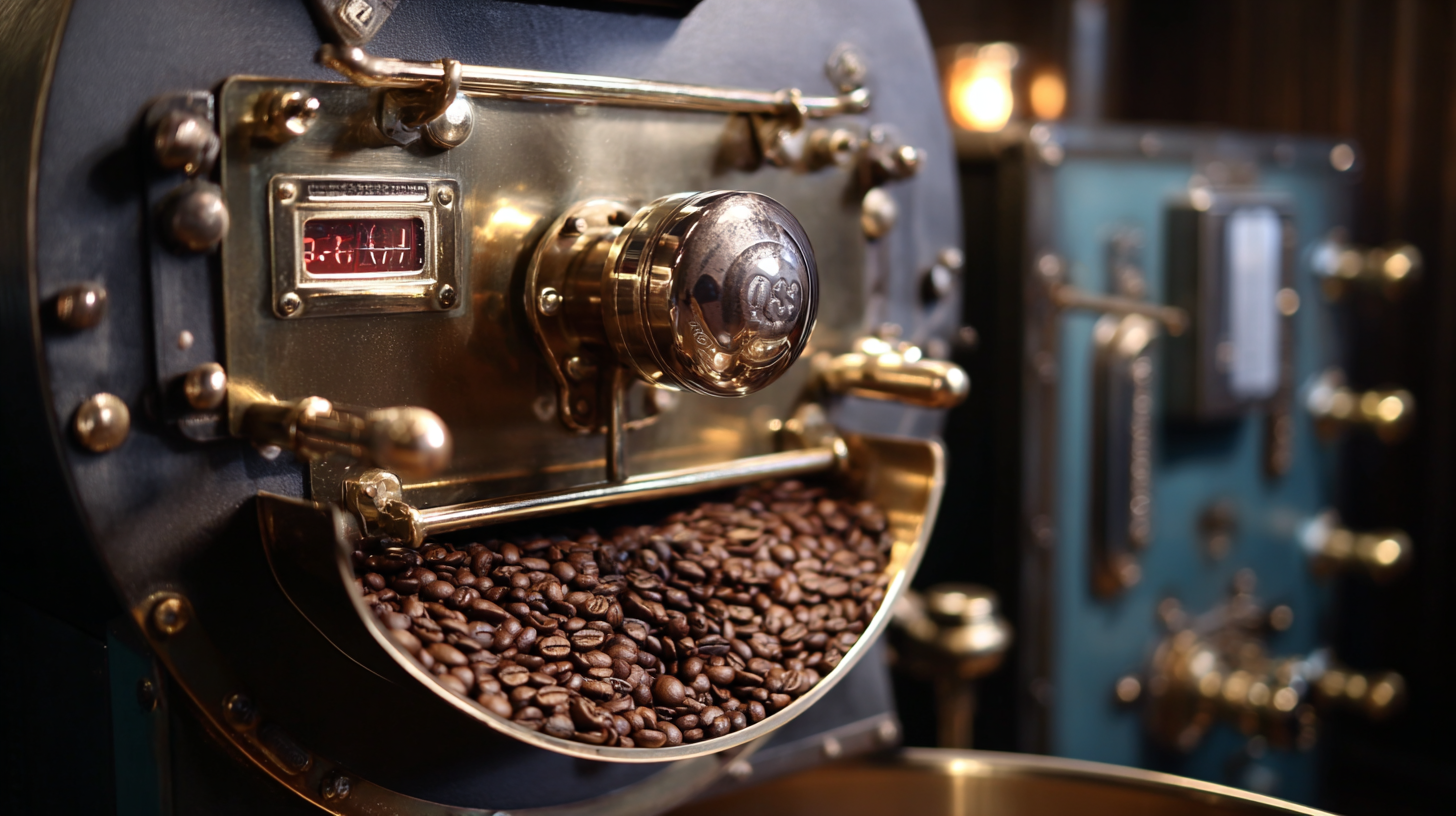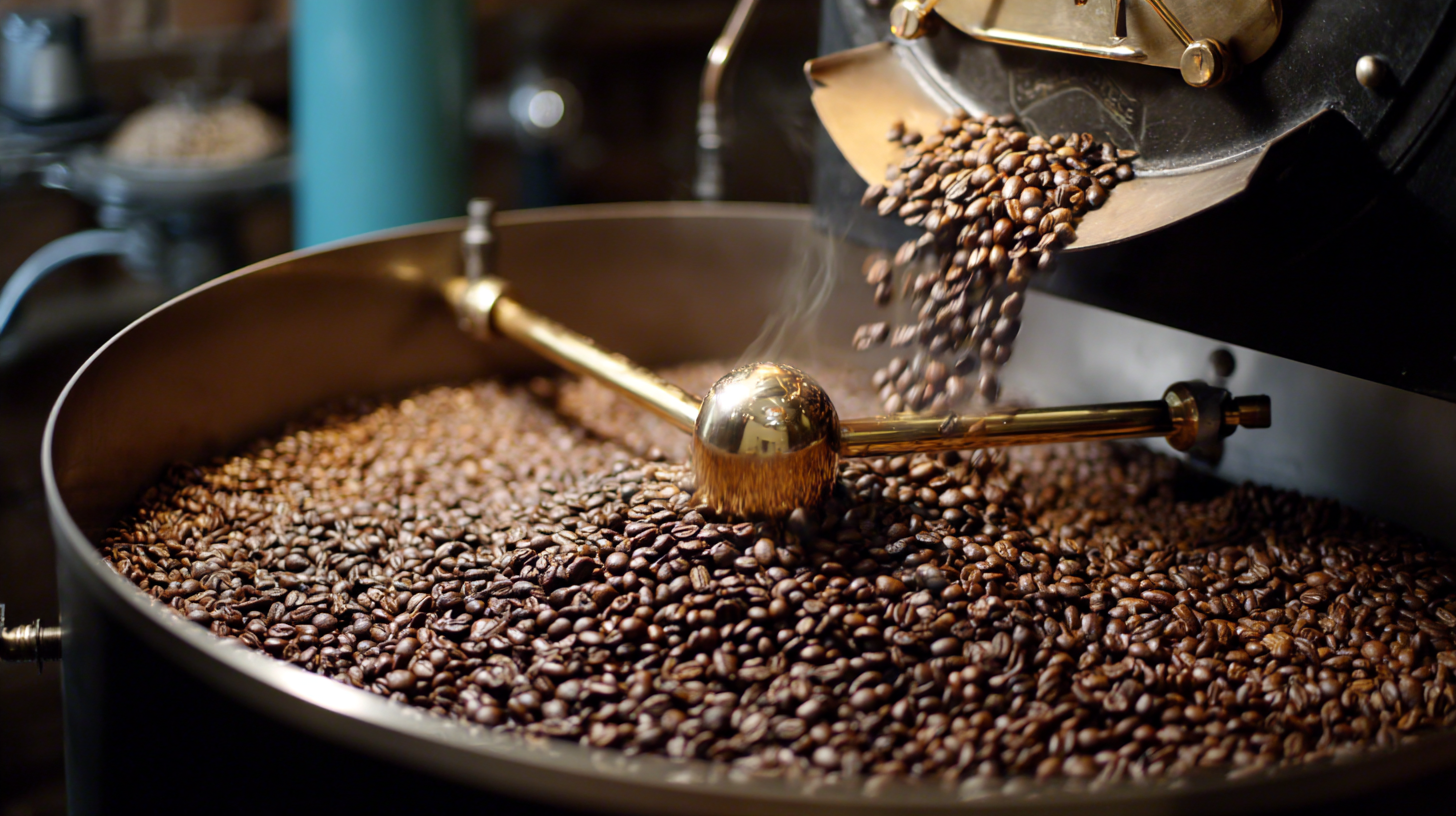How to Choose the Best Sample Roaster for Your Coffee Business Success
In the competitive world of coffee business, choosing the right sample roaster is crucial for success. A sample roaster not only allows you to evaluate various coffee beans but also plays a pivotal role in developing unique and consistent flavors that can set your brand apart. However, many entrepreneurs face significant challenges when selecting the ideal sample roaster for their needs. From understanding the intricacies of roasting profiles to navigating the technical specifications of different machines, the process can often seem overwhelming. In this blog, we will explore the common problems associated with selecting a sample roaster, offering practical insights and solutions to help you make an informed decision that aligns with your business goals. By addressing these key issues, your investment in a sample roaster can lead to not just successful product development, but also a thriving coffee brand that resonates with customers.

Key Features to Consider When Selecting a Sample Coffee Roaster
When selecting a sample coffee roaster for your coffee business, understanding key features is essential to ensure success in this competitive industry. One of the most critical factors to consider is the roaster's capacity. According to the Specialty Coffee Association, a roaster capable of handling at least 1-2 kilograms per batch is ideal for small to medium-sized coffee businesses looking to experiment with different roast profiles and flavors. This capacity allows for flexibility in roasting small samples while maintaining quality control across batches.
Another significant consideration is the control over the roasting process. Modern sample roasters should offer precise temperature regulation and profiling capabilities. A report from the International Coffee Organization highlights that roast profile plays a crucial role in flavor development, accounting for up to 40% of the final coffee taste. Therefore, selecting a roaster with advanced profiling features allows you to replicate successful roasts consistently and bring out unique characteristics in your coffee beans. Additionally, ease of cleaning and maintenance should not be overlooked, as efficient cleaning protocols can reduce downtime and ensure that your roaster remains in optimal condition for longer-term use.
How to Choose the Best Sample Roaster for Your Coffee Business Success - Key Features to Consider When Selecting a Sample Coffee Roaster
| Feature | Description | Importance | Notes |
|---|---|---|---|
| Roasting Capacity | Amount of coffee beans the roaster can handle per batch. | High | Select based on your production needs. |
| Heat Source | Type of fuel used for roasting, such as electric or gas. | Medium | Consider efficiency and flavor impact. |
| Temperature Control | Ability to monitor and adjust roasting temperatures. | High | Critical for achieving desired flavor profiles. |
| User Interface | How easy it is to operate and set up the roaster. | Medium | Look for intuitive controls and clear displays. |
| Cooling System | Method used to cool the beans after roasting. | High | Affects flavor and turn-around time. |
| Price | The cost of the sample roaster. | Medium | Balance between budget and features. |
Comparing Different Types of Coffee Roasters for Small Businesses
When it comes to selecting the best coffee roaster for your small business, understanding the different types available can make all the difference in achieving success. Whether you opt for drum, hot air, or fluid bed roasters, each type has its unique benefits tailored to various roasting styles and batch sizes. Drum roasters are favored for their capacity to produce rich flavors, while fluid bed roasters are known for their efficiency and speed. According to industry reports, the global coffee roaster market is projected to grow significantly, highlighting the increasing demand for high-quality roasting options.
Tips: When choosing a roaster, consider the volume of beans you plan to roast. For smaller businesses, batch roasters are ideal as they allow for more control over the roasting process. Additionally, assess how easy the equipment is to maintain and the availability of spare parts, ensuring you can keep your operations running smoothly.
Another crucial factor is the technology incorporated in the roaster. Many modern roasters come equipped with scalable profiles and data tracking capabilities, which are essential for maintaining consistent quality. It's advisable to select a roaster that aligns with your specific roasting goals and flavor profiles you wish to achieve, as this can significantly influence your customer satisfaction and retention rates.
Cost vs. Quality: Finding the Right Balance in Sample Roasters
When it comes to sourcing sample roasters for a coffee business, the decision often hinges on balancing cost and quality. As specialty coffee continues to thrive, roasters must ensure that the quality of their offerings stands out amidst stiff competition. According to recent industry reports, high-quality coffee lots are increasingly identified by their diverse flavor profiles, which require careful attention during the roasting process. Therefore, investment in quality control systems has never been more critical, especially as margins tighten and production costs soar.

Current trends indicate that coffee roasters are adapting to a challenging landscape marked by rising green coffee prices and inflation. Many are reassessing their pricing strategies to not only remain competitive but also to manage the costs associated with higher quality inputs. This means that selecting the right sample roaster is essential; it should not only fit within the budget but also enhance the roaster's ability to deliver exceptional products. Ultimately, by prioritizing quality in their roasting processes, businesses can distinguish themselves in the marketplace and foster long-term customer loyalty.
User-Friendly Designs: Why Roaster Accessibility Matters
When selecting a sample roaster for your coffee business, user-friendly design should be at the forefront of your decision-making process. Accessible roasters enhance the overall experience for both seasoned professionals and newcomers alike. A thoughtfully designed roaster allows for intuitive operation, enabling users to focus on perfecting their roast profiles rather than struggling with complex controls.

Tip 1: Look for roasters with clear interfaces and straightforward settings. Models with digital displays or adjustable dials facilitate easy monitoring of the roasting process, ensuring that you can replicate successful batches with precision.
Moreover, accessibility in design often correlates with safety features. A sample roaster that minimizes hazards not only protects users but also encourages a more productive environment.
Tip 2: Prioritize roasters with safety shut-off mechanisms and insulated components. These features provide peace of mind and allow you to concentrate on developing exceptional coffee flavors without the added stress of potential accidents.
Incorporating a user-friendly roaster in your business can lead to enhanced efficiency and consistent quality. An accessible design not only supports operational simplicity but also fosters creativity, paving the way for your coffee business success.
The Importance of Size and Capacity in Sample Roaster Selection
When selecting a sample roaster for your coffee business, understanding the significance of size and capacity is pivotal. According to industry reports, the average coffee sample roaster typically ranges between 1 to 3 kilograms in capacity. This size is essential for small-scale roasting operations that aim to test and perfect blends before scaling up. A roaster on the smaller end allows for experimentation with various roast profiles and flavor notes without committing to larger batches, which can be costly.
Furthermore, as the Specialty Coffee Association (SCA) indicates, the ability to roast samples consistently is crucial for quality control and innovation. Roasters with larger capacities, such as those approaching 5 kilograms, may be more suitable for businesses looking to streamline their processes and move from sampling to larger production runs. However, this increase in size must also be matched with adequate space and resources, ensuring that the roaster can be operated efficiently without compromising the quality of the coffee. Thus, evaluating your operational needs in terms of scale and capacity will significantly impact your coffee business's success.


